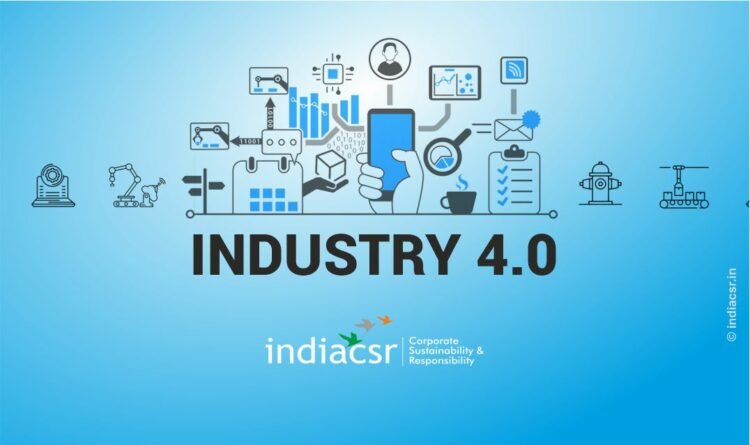India is guiding the fourth industrial revolution as government programmes make technology accessible, improve services and encourage startups.
Highlighting the role of science and technology in accelerating the country’s development, Prime Minister Narendra Modi on Saturday said that India is moving towards leading the fourth industrial revolution. While inaugurating the Centre-State Science Conclave on 10 September he said, “Centre-State Science Conclave is an example of our mantra of Sabka Prayas. Today, as India moves towards leading the fourth industrial revolution, the role of India’s science and people associated with this field is very important.”
Role of Science in Industrialisation
For the development of 21st-century New India, science will play an important role in accelerating the growth of all areas and sectors. Prime Minister urged citizens to celebrate the achievements of the scientists of the country with great enthusiasm.
“We should celebrate the achievements of our scientists. When we celebrate scientists and their innovations, science will become a part of our culture. Our government is moving forward with the vision of science-based development,” PM said.
Science-based development
He emphasised that the central government is working with the concept of science-based development. Since 2014, PM Modi said there has been a substantial increase in investment in the field of science and technology.
“Investment in science and technology has increased since 2014. Due to the efforts of the government, India has been ranked 46th in the Global Innovation Index, from 81st in 2015. Today’s youth quickly adapt to technology. We have to support them with full strength,” he stated.
Jai Vigyan and Jai Anusandhan
Prime Minister said New India is marching ahead with the mantra of “Jai Jawan, Jai Kisan, Jai Vigyan and Jai Anusandhan”.
“We have to make India a global center of research and innovation in this Amrit Kaal. States should adopt best practices from other states. This will be a step towards ensuring timely and effective implementation of science-led development programs in the country,” he said.
Creation of more scientific institutions
In order to encourage innovation, PM said the state governments should emphasize on the creation of more scientific institutions and simplification of processes.
“In the states, there are many national-level scientific institutes, national laboratories are also there. The states should take full advantage of their capability and their expertise. We also have to take our science-related institutions out of the state of silos,” Prime Minister said. He said the number of innovation labs should also be increased in higher education institutions in the States.
Role of Digital India
The Digital India programme, started eight years ago, showed how technology can be used for progress. A country that does not adopt modern technology is left behind, as had happened to India in the Third Industrial Revolution. Today, India is guiding the world in the fourth industrial revolution, Industry 4.0.
The government is skilling, upskilling and reskilling at least 14 lakh people in the next five years and it will support 30 institutions under the Chips-to-Startup Programme. Space, mapping, drones, gaming, and animation are among those that are going to expand.
Services like life certificates, reservations and banking have become accessible and affordable. Under Direct Benefit Transfer, more than Rs 23 lakh crore rupees have been directly transferred to the accounts of the beneficiaries, in the last 8 years.
Due to such technology, Rs 2.23 lakh crore of the country have been saved from falling into the wrong hands. Digital India has brought the government to the doorsteps and phones of the citizens. Similarly, documents for rural properties are provided using technology. The government is working on digital mapping of rural properties using drones.
World’s largest Covid vaccination
India has been running the world’s largest and most efficient Covid vaccination and Covid relief program. The government transfers thousands of crores of rupees to the bank accounts of crores of women, farmers, and labourers with a single click. With the help of the One Nation One Ration Card, it has ensured free ration to more than 80 crore countrymen.
India’s financial technology (fintech) sector is truly a solution “by the people, of the people, for the people”. At least 40 per cent of digital transactions take place in India.
‘Digital India Bhashini’, a new initiative, will enable easy access to the internet and digital services in Indian languages, including voice-based access, and help the creation of content in Indian languages. Another programme is Digital India Genesis’ (Gen-next Support for Innovative Startups) is a platform, to discover, support, grow and make successful startups in Tier-II and Tier-III cities of India. A total outlay of Rs 750 crore has been envisaged for the scheme.







